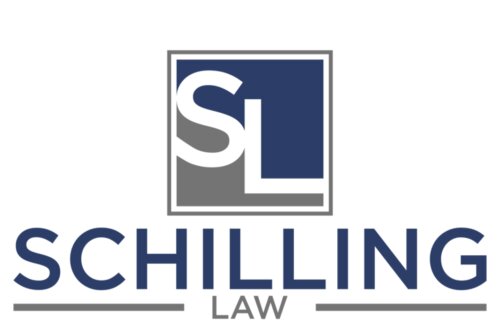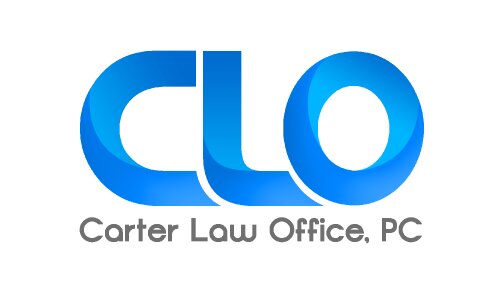Best Commercial Real Estate Lawyers in Kansas
Share your needs with us, get contacted by law firms.
Free. Takes 2 min.
Free Guide to Hiring a Real Estate Lawyer
Or refine your search by selecting a city:
List of the best lawyers in Kansas, United States
About Commercial Real Estate Law in Kansas, United States
Commercial real estate (CRE) law in Kansas involves the rules and regulations that govern the acquisition, use, leasing, transfer, and development of properties used for business purposes. These properties can include office buildings, retail centers, warehouses, industrial sites, and undeveloped land intended for commercial use. Kansas has its own state statutes and court decisions that work alongside federal regulations to guide parties through transactions, ownership, zoning, financing, and dispute resolution related to commercial real estate.
Why You May Need a Lawyer
Commercial real estate transactions are more complex than residential real estate dealings. There are several common situations where individuals and businesses may require legal help:
- Drafting and Reviewing Contracts: Purchase agreements, leases, and financing contracts must comply with Kansas law and protect your interests.
- Negotiating Leases: Commercial leases are often lengthy and involve provisions that significantly impact the landlord and tenant-legal guidance can help avoid costly mistakes.
- Zoning and Land Use Issues: Local zoning ordinances may limit how property can be used, prompting the need for legal assistance to navigate compliance or to apply for variances.
- Title and Due Diligence: Ensuring clear ownership and identifying any liens or encumbrances on the property are critical in any transaction.
- Environmental Compliance: Commercial properties must meet environmental standards, and violations can lead to significant liability.
- Dispute Resolution: Litigating or mediating contract disputes, evictions, or boundary disagreements often requires experienced legal counsel.
- Financing Arrangements: Many transactions involve complex loan agreements with lenders, requiring legal review to protect borrower and lender interests.
Local Laws Overview
Kansas commercial real estate law is influenced by several key legal frameworks and practices:
- Statutory Law: Kansas Statutes Annotated (KSA) cover real property, contracts, and landlord-tenant relations specific to commercial settings.
- Landlord-Tenant Law: Commercial tenancies in Kansas are generally governed by lease agreements rather than state landlord-tenant statutes, which primarily address residential leases. This makes negotiated lease terms especially important.
- Zoning Regulations: Each city and county has its own zoning codes. These codes control what types of businesses can operate in certain areas and what kinds of improvements can be made to properties.
- Recording and Title: Kansas is a “notice” recording state, which means that property interests must generally be recorded with the county register of deeds to be legally effective against third parties.
- Environmental Compliance: State and federal environmental regulations apply to commercial property, impacting development and use, especially in cases of hazardous substances.
- Eminent Domain: The government can acquire private property for public use under certain circumstances, but must provide just compensation. Kansas law outlines the procedures for these takings.
- Taxation: Kansas imposes property taxes and, in some cases, transfer taxes on commercial real estate; understanding tax implications is vital.
Frequently Asked Questions
What is considered commercial real estate in Kansas?
Commercial real estate generally refers to properties used for business purposes, such as office buildings, manufacturing sites, warehouses, shopping centers, and land intended for business development. Residential rental properties with more than four units may also be classified as commercial.
Do I need a lawyer to buy or sell commercial property in Kansas?
While Kansas law does not require you to hire a lawyer for commercial real estate transactions, it is highly recommended. Transactions often involve complex documents, regulatory compliance, and significant financial risk. An attorney can help protect your interests and prevent costly mistakes.
How are commercial leases different from residential leases?
Commercial leases in Kansas are not as regulated as residential leases. Most terms are negotiable between the parties, including rent amount, lease duration, renewal options, maintenance responsibilities, and terms for ending the lease. Due diligence and legal review are essential.
What are the main zoning issues in Kansas commercial real estate?
Zoning issues include restrictions on what types of businesses can operate in a specific location, building heights, signage, parking, and land use. Each city and county has its own codes, so it is important to verify zoning compliance before buying or developing commercial property.
How does the due diligence process work in Kansas?
Due diligence involves thoroughly investigating the property before purchasing or investing. This includes checking title and ownership, reviewing current leases, confirming zoning and land use, assessing environmental issues, evaluating the physical condition of the building, and ensuring no outstanding liens or encumbrances exist.
What should be included in a Kansas commercial property purchase contract?
A solid purchase contract should cover the purchase price, payment terms, contingencies (such as financing, inspections, zoning approvals), title insurance, closing date, apportionment of taxes, representations, and warranties. Consulting a lawyer ensures your contract covers all necessary points.
Are environmental assessments required for Kansas commercial property?
While not always required by law, lenders commonly require environmental site assessments before financing commercial properties. Assessments identify potential contamination or environmental risks which could result in liability for cleanup costs.
What happens if there is a title problem before closing?
If a title search reveals problems such as liens, easements, or conflicting ownership claims, the issue must be resolved before closing. Title insurance can protect buyers and lenders against certain defects not discovered during the search. Legal assistance is critical in resolving complex title issues.
What are common disputes in Kansas commercial real estate?
Common disputes include breach of contract, non-payment of rent, lease violations, property condition issues, co-tenant disagreements, boundary disputes, and disagreements over build-outs or improvements. Many disputes can be resolved through negotiation, but some require litigation or mediation.
How are property taxes handled in commercial real estate transactions?
Property taxes are usually apportioned between the buyer and seller based on the closing date. The buyer is responsible for confirming the tax status of the property and ensuring no unpaid taxes exist. Tax values and rates can vary by county, and exemptions or incentives may be available based on use.
Additional Resources
If you need more information or support related to commercial real estate in Kansas, consider the following resources:
- Kansas Department of Commerce: Offers guidance on business development and property acquisition.
- Kansas Real Estate Commission: Regulates real estate licensees and repositories of real estate transaction information.
- County Register of Deeds Offices: Where property transactions are recorded and title searches can be performed.
- Local zoning and planning departments: For information on zoning requirements and approvals.
- Kansas Bar Association: Provides lawyer referral services and general information about real estate law in the state.
- Local commercial real estate agents and brokers: Many are familiar with market trends and common legal issues in your area.
Next Steps
If you are facing a commercial real estate issue or are planning to purchase, lease, or invest in commercial property in Kansas, you should:
- Gather all relevant documents, such as contracts, zoning information, prior title searches, and correspondence.
- Consider consulting with an experienced Kansas commercial real estate attorney to review your situation. Many attorneys offer initial consultations, which can help you identify possible legal issues and determine a path forward.
- Contact local and state resources, such as planning departments or the Kansas Real Estate Commission, for guidance on compliance and procedural requirements.
- If needed, reach out to the Kansas Bar Association or local lawyer referral services for help finding qualified legal counsel.
- Stay informed about deadlines and obligations, particularly regarding contract terms, regulatory filings, and property tax payments.
By taking these steps, you can help ensure that your commercial real estate matters in Kansas are handled properly and your interests are protected throughout the process.
Lawzana helps you find the best lawyers and law firms in Kansas through a curated and pre-screened list of qualified legal professionals. Our platform offers rankings and detailed profiles of attorneys and law firms, allowing you to compare based on practice areas, including Commercial Real Estate, experience, and client feedback.
Each profile includes a description of the firm's areas of practice, client reviews, team members and partners, year of establishment, spoken languages, office locations, contact information, social media presence, and any published articles or resources. Most firms on our platform speak English and are experienced in both local and international legal matters.
Get a quote from top-rated law firms in Kansas, United States — quickly, securely, and without unnecessary hassle.
Disclaimer:
The information provided on this page is for general informational purposes only and does not constitute legal advice. While we strive to ensure the accuracy and relevance of the content, legal information may change over time, and interpretations of the law can vary. You should always consult with a qualified legal professional for advice specific to your situation.
We disclaim all liability for actions taken or not taken based on the content of this page. If you believe any information is incorrect or outdated, please contact us, and we will review and update it where appropriate.
Browse commercial real estate law firms by city in Kansas
Refine your search by selecting a city.













